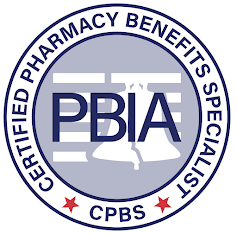‘Biosimilar’ drugs are gaining market share, Tufts researchers find and other notes from around the interweb:
- ‘Biosimilar’ drugs are gaining market share, Tufts researchers find. Biosimilars drugs are almost identical copies of original biologic products. Early biosimilars had slower adoption and savings than expected; however, biosimilars launched in recent years have had more success. With several biosimilar launches planned in the next few years, it is important to understand how the state of the market might foretell significant market savings in the future. To do so, we explored how the introduction of biosimilars affected originator-biosimilar markets during the period 2017–22. We found that after biosimilar availability, payers increasingly allowed choice of preferred products. By 2022, 76 percent of commercial payers’ coverage policies listed two or more products (originator or biosimilar) as first-line options. Biosimilar market shares exceeded those of originators by a mean of three years after the first biosimilar launch, and originator-biosimilar market average sales price declined substantially. Taken together, these findings provide evidence of a functioning competitive market.
- PBM Math: Big Chains Are Paid $23.55 To Fill a Blood Pressure Rx. Small Drugstores? $1.51. Alternate Funding Programs, such as copay assistance programs (CAPs), are offered by manufacturers on some brand name medications to lower patients’ out-of-pocket costs. While the focus is on removing barriers, if not managed, these programs can circumvent the formulary and the plan design’s ability to steer members toward lower cost and effective therapies. In response, Pharmacy Benefit Managers (PBM) have developed programs that plan sponsors can opt into. PBMs either manage their own programs or outsource all or a portion of their programs. One such program is manufacturer copay assistance programs. CAPs are non-need-based programs for those on commercial or private insurance. PBMs typically manage CAP in two ways: accumulator programs and/or variable copay programs.
- Supreme Court takes up PBM case: Does ERISA preempt states’ efforts to regulate drug prices? The U.S. Supreme Court plans to look at states’ ability to regulate pharmacy benefit managers this term. Glen Mulready, Oklahoma’s insurance commissioner, is trying to overturn an appeals court ruling that found that the Employee Retirement Income Security Act of 1974 benefits rule uniformity provisions preempt state efforts to regulate PBMs when the PBMs are serving self-funded employer health plans. The Supreme Court “has long cautioned against stretching ERISA to preempt laws in ‘traditionally state-regulated’ areas about which ‘ERISA has nothing to say,’ Mulready says in a brief filed in connection with the case, Mulready v. Pharmaceutical Care Management Association. “Pharmacy regulation is an area of traditional state concern and neither PBMs nor prescription-drug benefits are mentioned anywhere in ERISA.” But the PCMA, the PBMs’ group, says ERISA should preempt the Oklahoma PBM law.
- Employers haven’t a clue how their drug benefits are managed. Most employers have little idea what the pharmacy benefit managers they hire do with the money they exchange for the medications used by their employees, according to a KFF survey released Wednesday morning. In KFF’s latest employer health benefits survey, company officials were asked how much of the rebates collected from drugmakers by pharmacy benefit managers, or PBMs, is returned to them. In recent years, the pharmaceutical industry has tried to deflect criticism of high drug prices by saying much of that income is siphoned off by the PBMs, companies that manage patients’ drug benefits on behalf of employers and health plans. Employers may assume the PBMs are acting in their best interest, but they don’t have a legal obligation to do so.
